This week, a set of ideas drawn from Monday’s free webinar on Philosophy-in-Role (your next one, on Community Builders, will happen on October 21st at 6pm UK time – click here for more details and to book your place).
What is Philosophy-in-Role?
Philosophy-in-Role is our catch-all term for any session that immerses students into a story, and invites them to make decisions that might determine the narrative arc. You’ve probably been in a similar immersive experience in your life – whether that’s reading a choose-your-own adventure book, escaping an escape room, or attending an interactive theatre event.
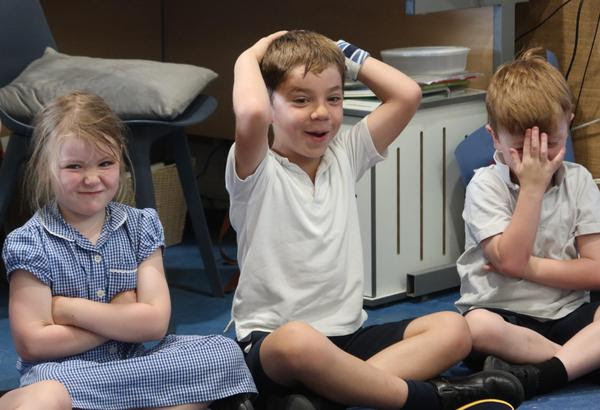
Why do it?
Philosophy-in-Role can make discussions more engaging and meaningful. Even the thinnest wrapper of imagination can bring a debate to life, no matter their age. Their flexibility also means you can plan the start and not much else. Pick up on the things that are said to lead them to new scenarios and questions. They also allow you and the group to “step out” afterwards and use the story as a stimulus for a more general discussion, back in the real world. Below is a guide to planning your own, with lots of examples from our back-catalogue.
How to plan your own Philosophy-in-Role session
A good starting point is to think of your main question. Our fast-track route to juicy questions is to take your topic and identify key concepts. Using those, work out where debate can lie. It can take a bit of thinking – so it’s also chapter of our book and also forms part of our in-school training – but here’s an example for the topic of war:
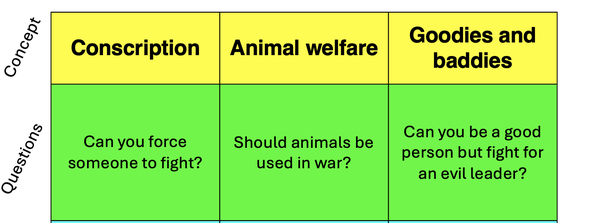
Next, follow these series of S’s to work out your narrative.
Situation – what might be an interesting scenario to put your students in? For example, could they be part of the Prime Minister’s cabinet advising their leader on whether conscription is ethical? Could they have just received a letter from an animal charity requesting a stop to using animals in war? Could they be historical soldiers who have just come across soldiers from the enemy country?
Stimulus – what will you use to get the discussion going? This could be a story (like our Either-Ories), or a script (like this one set on the Titanic). A script could also be loosely improvised between you and a colleague. It just needs to provide two or more opinions that the children can choose between.
Self – what role are you playing? Are you the narrator of the story, or one of the characters – who perhaps needs to be persuaded – the human-eating alien in Alien Adventures in Philosophy, who needs to be convinced it’s not ethical to eat people. Or perhaps a facilitator-in-role as an ignorant robot?
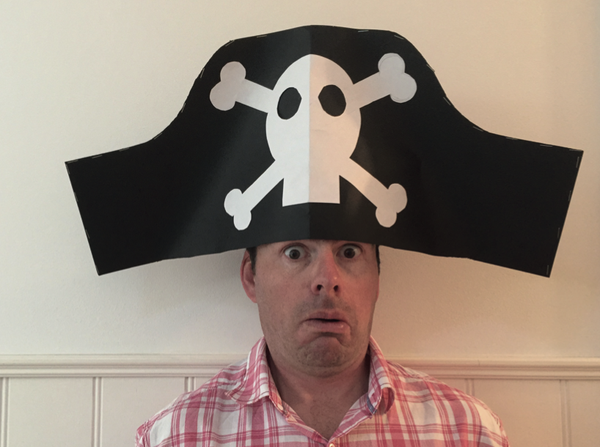
Students – who are they? Are they a community of equals? Do they have pre-ascribed roles/statuses? Are they simply appearing as themselves, encountering a fictional situation in the classroom such as a letter from the headteacher, or a debate between you and your teaching assistant?
Staging – what props can you find to add an extra bit of spice? An object can focus attention and elevate the session above a normal classroom discussion. Make use of the dressing up box if you teach young children, or the drama props cupboard.
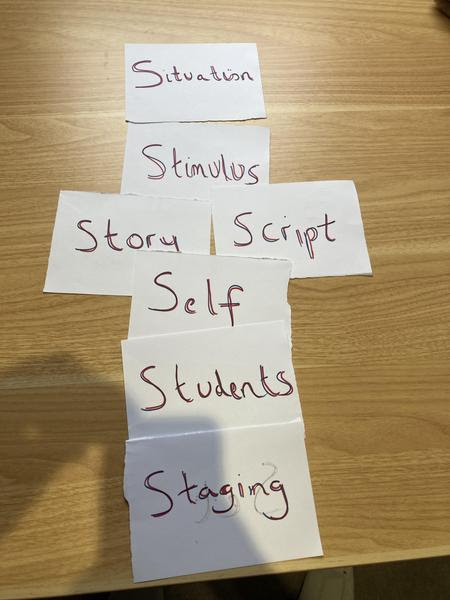
What’s new in the Philosoverse?
Yesterday, Tom returned to Thomas’s Clapham, to run a series of workshops with Years 6, 7 and 8 that incorporated debate, metacognition, Ometers and more. Learn more about our school workshops.
Tom and his team at Hidden Leaders also returned to Tunbridge Wells Girls’ Grammar School for two days of teambonding challenges with all of Year 7. We can’t wait to return next year.
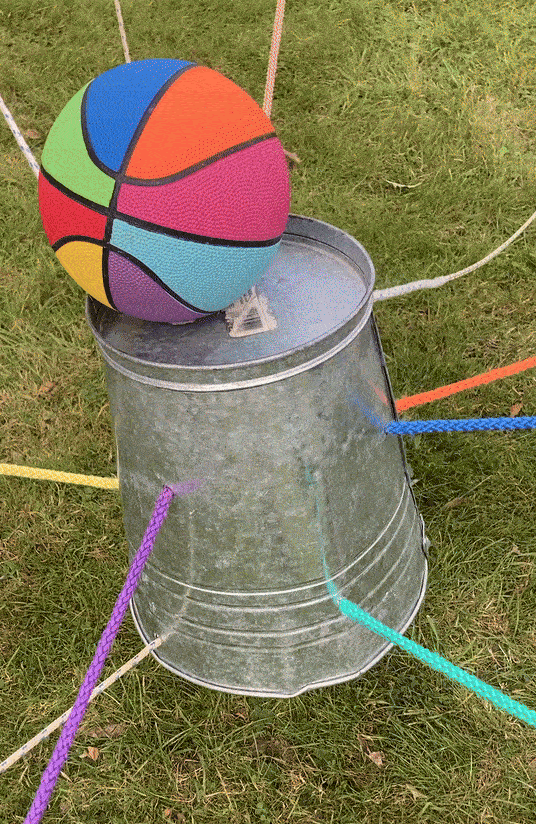
If you don’t have your own portable swamp or Radioactive Sphere Transporter, you can download our Tabletop Teambuilding guide.
Jason is back from his trip training teachers at UWC Thailand and is getting his teeth stuck into his Zoom philosophy lessons through P4HE.org.
As mentioned at the beginning, Tom also ran a free webinar on Philosophy-in-Role as part of the series to relaunch the revamped P4C.com. The next is scheduled for October 21st, on Community Builders.
Best wishes,
Tom and Jason